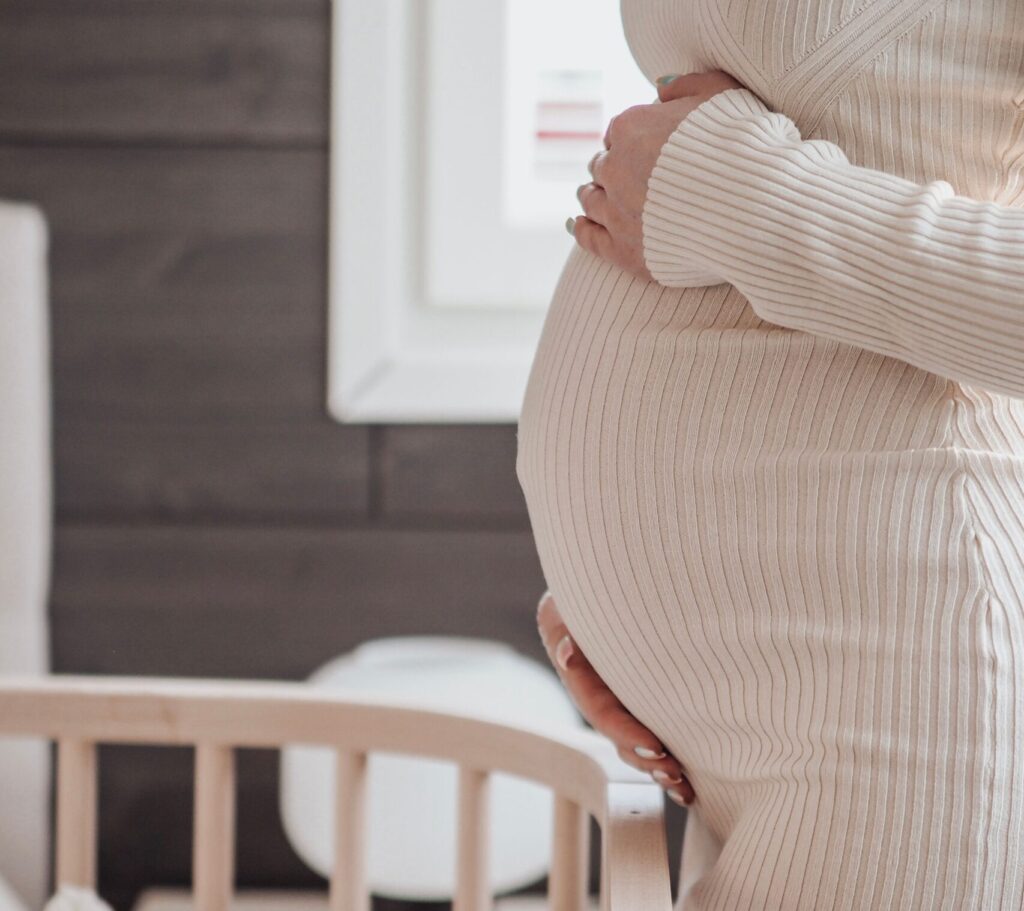Pregnancy is a wonderful time in life, but it can also bring challenges, one of the most common being heartburn. Many expectant mothers suffer from heartburn, which causes a pounding in the chest area and an unpleasant rise of acidic fluid in the throat. In this article, we discuss the causes of heartburn during pregnancy and share useful tips and natural remedies to help you alleviate symptoms and improve your quality of life during pregnancy. Whether you’re pregnant for the first time or a seasoned mum of many, these tips will help you manage your heartburn.
Understand the causes of heartburn during pregnancy
During pregnancy, many important changes take place in the body, including hormonal changes that can cause heartburn. The two most common causes of heartburn during pregnancy are the hormone progesterone, which relaxes the muscles of the body, including the muscles of the digestive tract, and of course the growing uterus, which pushes on the stomach and increases pressure on the digestive tract. This can cause stomach acid to rise into the oesophagus and a burning sensation called heartburn. By understanding these factors, you can take steps to prevent and control heartburn. However, it is important to remember that every pregnancy is individual and not all pregnant women experience heartburn.
Changes in diet: What to eat and avoid
Changing your diet is one of the best ways to manage heartburn during pregnancy. Firstly, it is advisable to focus on small, frequent meals rather than large meals. This can reduce stomach pressure and reduce the likelihood of heartburn. Avoid foods and drinks that can trigger heartburn, such as citrus fruits, tomatoes, greasy and spicy foods. Instead, focus on high-fibre foods, proteins, dairy products and vegetables. It’s also a good idea to drink plenty of water between meals, but avoid drinking too much during meals as this can increase stomach pressure. Remember, however, that everyone is different and what works for one person may not work for another. Try different strategies and see what works best for you.
Why goat’s cheese should not be eaten during pregnancy? Read more here!
These postural changes can help control heartburn and make pregnancy more comfortable.
The role of posture in the prevention and treatment of heartburn
Physical posture can have a significant impact on the occurrence and severity of heartburn. When you are laying or sitting down, stomach acids can more easily rise into the oesophagus, causing heartburn. So try to keep your upper body upright during and after meals to keep stomach acids in the stomach in the right place. Avoid laying down or leaning back immediately after eating and allow at least three hours for digestion before going to bed. This will help the food to digest, reducing the chance of heartburn. If heartburn bothers you at night, consider raising the head of your bed or sleeping on your back and elevating your upper body. These postural changes can help control heartburn and make pregnancy more comfortable.
Natural remedies to relieve heartburn
If you are looking for natural ways to manage heartburn during pregnancy, you are in the right place. There are safe and effective home remedies such as ginger tea, known for its digestive soothing properties, and apple cider vinegar, which can be diluted in water and drunk before meals to aid digestion. Aloe vera drink can also help soothe the stomach and relieve heartburn. In addition, yoga or meditation has been shown to help some pregnant women with heartburn, as it helps to calm both the mind and body. However, always remember to discuss any new treatment methods with your healthcare professionals to make sure they are safe for both you and your baby.
Avoid foods and habits that can cause heartburn
The key to managing heartburn during pregnancy is to identify and avoid foods and lifestyles that can trigger heartburn symptoms. Common heartburn triggers include carbonated drinks, citrus fruits, tomatoes, onions, chocolate, greasy or spicy foods and mint. Eating habits can also contribute to heartburn. You should try to eat smaller meals more often during the day rather than a few large meals. It is also advisable to avoid eating too close to bedtime, as this may increase the risk of heartburn. Also avoid lying down or laying immediately after eating, as this can contribute to heartburn.
Find out why you shouldn’t eat salty liquorice when you’re pregnant, here!

Exercise and heartburn: Safe exercises for pregnant women
Exercise helps improve digestion and reduce heartburn, but not all forms of exercise are safe during pregnancy. Exercising too intensively can also increase the risk of heartburn. Focus on low-intensity, calm exercise such as walking, yoga or swimming. These are gentle forms of exercise that do not put a lot of pressure on your stomach. Stretching and breathing exercises can also help control heartburn by relaxing the body and improving digestion. Try to add exercise to your daily routine, but avoid exercising immediately after meals. Wait at least an hour after eating before you start exercising. Don’t forget to listen to your body and rest if you feel tired. Always remember to talk to your doctor or midwife before starting a new exercise programme.
When is it time to talk to your doctor about heartburn?
Although heartburn is a common problem during pregnancy, it can sometimes be caused by more serious conditions or be a sign of something more serious. That’s why it’s important to know when it’s time to consult a doctor. Seek medical attention if your heartburn is persistent or very painful, you can’t keep food down or you lose weight quickly for no reason, you vomit blood, your stools are black, or you have trouble breathing or swallowing. In these situations, there may be a more serious cause of heartburn than just pregnancy and it should be investigated thoroughly. It is important to remember that healthcare professionals are there to help you to make your pregnancy as safe and comfortable as possible.
Pregnancy heartburn medication: Important things you should know
If lifestyle changes or home remedies don’t help your heartburn, you may need medication to manage it. There are several safe heartburn medicines during pregnancy, such as antacids and proton pump inhibitors. Antacids neutralise stomach acid, while proton pump inhibitors reduce its production. However, it is important that you discuss any potential medicines with a healthcare professional before using them during pregnancy. It is also worth remembering that although heartburn medicines can relieve symptoms, they do not necessarily treat the underlying cause of heartburn. Therefore, you should continue to make lifestyle changes and maintain a healthy diet in addition to taking medication to manage heartburn as effectively as possible.
These relaxation techniques can help relieve stress and reduce heartburn symptoms.
Stress management and relaxation techniques to reduce heartburn
Stress can make heartburn worse, and its importance should not be underestimated. Pregnancy can be stressful and anxiety-provoking, so learning to manage stress is important in preventing and treating heartburn. Try relaxation techniques such as meditation, deep breathing or yoga. These methods can help relieve stress and reduce heartburn symptoms. Getting good quality sleep can also help reduce stress. It is normal to feel stressed, especially during pregnancy, but it is important to use effective stress management methods to keep yourself healthy and happy while expecting your baby.
You can read our tips for managing pregnancy nausea here!
Peer support and heartburn: Learning together and sharing experiences
Talking to others who have had the same experience and understanding their situation can be very helpful in managing heartburn. Peer support groups provide an opportunity to share experiences and gain valuable tips. Many people have experienced heartburn during pregnancy and have found their own unique ways of managing it that may be useful for you too. Groups can help you learn new strategies, get support and feel that you are not alone. Peer support will also help you to keep things in perspective and remember that heartburn during pregnancy is usually a temporary condition that disappears after delivery. So don’t hesitate to share your experiences, ask for advice and seek peer support during pregnancy.










